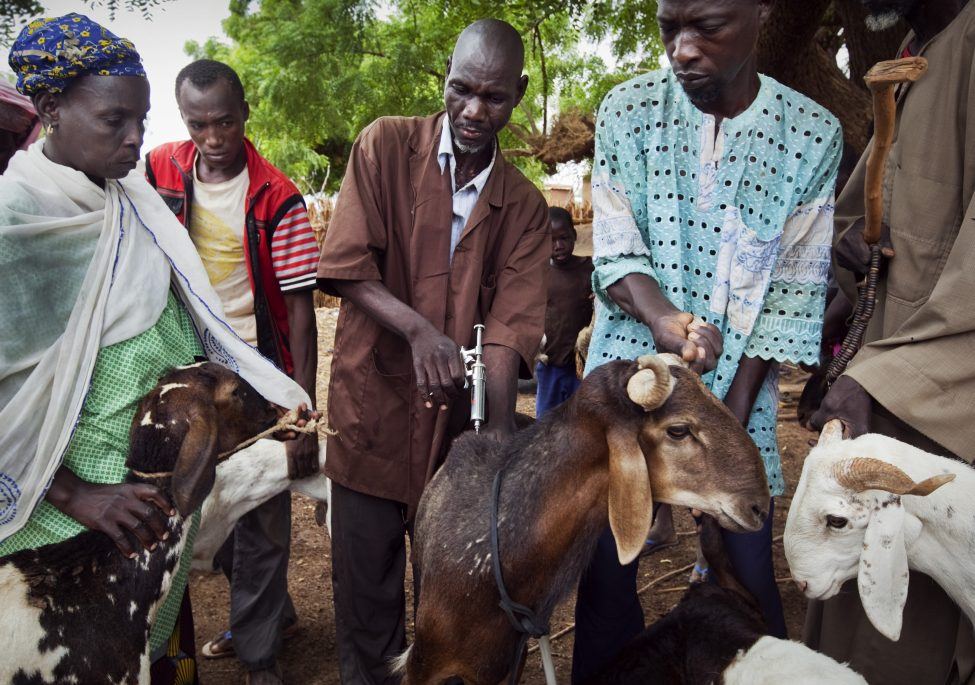Ever since it started working in Niger, Vétérinaires Sans Frontières Belgium has focused on providing high-quality veterinary services for everyone. It is safe to say that the main challenge was the scale we were working on: a territory 40 times larger than Belgium (1.267 million km²). Today, the country has no fewer than 40 active Local Private Veterinary Services (LPVSs), with one vet per practice and a stunning 1500 community animal health workers in the field.
Together, they cover even the most remote areas, providing high-quality healthcare and veterinary medicines. Despite the logistical and security challenges they face, their services cover 42 of Niger’s 63 departments, or about two thirds of the country. Why has the system succeeded here for 20 years, despite failing in other countries? We put the question to our colleague Yacouba Mahamadou, the animal health expert in charge of supporting the LPVSs in Niger.
How does the local animal health system work in Niger? Who are the different parties involved in providing animal healthcare?
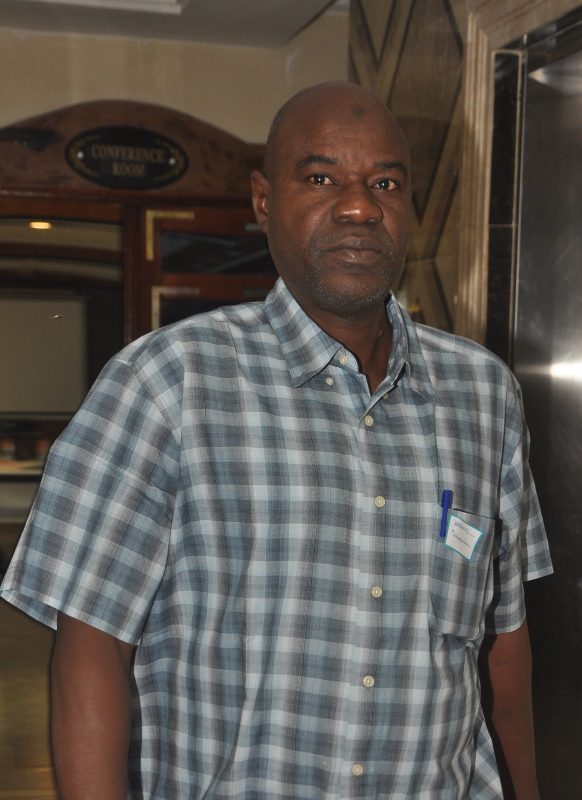
Yacouba Mahamadou, animal health expert in charge of LPVSs support for Vétérinaires Sans Frontières in Niger
“The local animal health system in Niger is mainly based on the Local Private Veterinary Services (LPVSs). This system, set up by Vétérinaires Sans Frontières Belgium, consists of a private vet and a network of livestock assistants, also called Community Animal Health Workers (CAHWs). The latter are livestock keepers trained in basic care who work under the private vet’s supervision. Overall, they are the ones responsible for providing animal care.”
What role do the community animal health workers take on? What are their main activities?
“The primary role of the Community Animal Health Workers is to raise awareness among livestock keepers of the fact that they can access modern treatment services, because many of them tend to treat their livestock themselves with products they source through informal channels. Then it is a question of familiarising them with modern livestock-keeping techniques for animal care and food production. The CAHWs also act as a link between communities and veterinary services, for public health issues as well as purely veterinary ones. For example, they play an important role in epidemiological surveillance, reporting suspected cases.
They also have a role within the community because they are in direct contact with these communities and are expected to guide them in livestock-keeping activities and the sale of their produce, for example. As they are members of the communities themselves, they guarantee their community direct access to modern animal health care.”
How was the LPVS model designed and implemented? How was animal health organised previously?
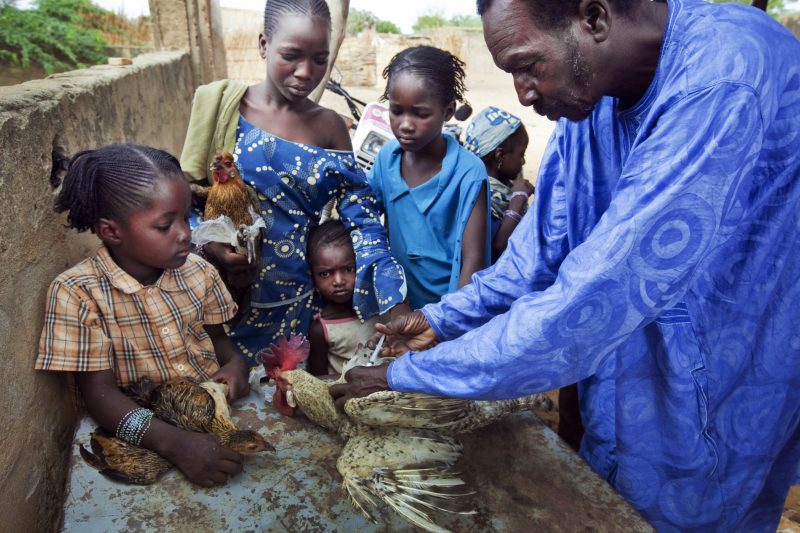
Local Private Veterinary Services (LPVSs) play an important role in vaccinating animals in Niger. © Tim Dirven
“Until the 1970s, all animal health services were provided by the State. A lack of human, financial and material resources exposed the limits of this system. In the 1990s or thereabouts, the State decided to privatise the livestock-keeping sector, with structural adjustment programmes. Community animal health workers have existed for a long time within public services, but the system had its limitations. Great effort was required to improve the quality of animal health services. The aim of privatisation was to achieve better food security and guarantee access to good quality, local healthcare services. The system was designed to make the provision of animal health care services easier and more accessible.”
How long has this system existed?
“The first LPVS in Niger was created in 2002 in Dakoro, a remote community in the south of the country. Since then, we have been through different phases of implementation, some slower than others, depending on the partners and budget. Now, 20 years later, we have a total of 40 active LPVSs in Niger, mainly in the south-west of the country. In the vast majority of cases (39 out of 40), they were set up or reinforced by Vétérinaires Sans Frontières Belgium.”
How would you explain the success of the system in Niger and the difficulty of replicating it in neighbouring countries?
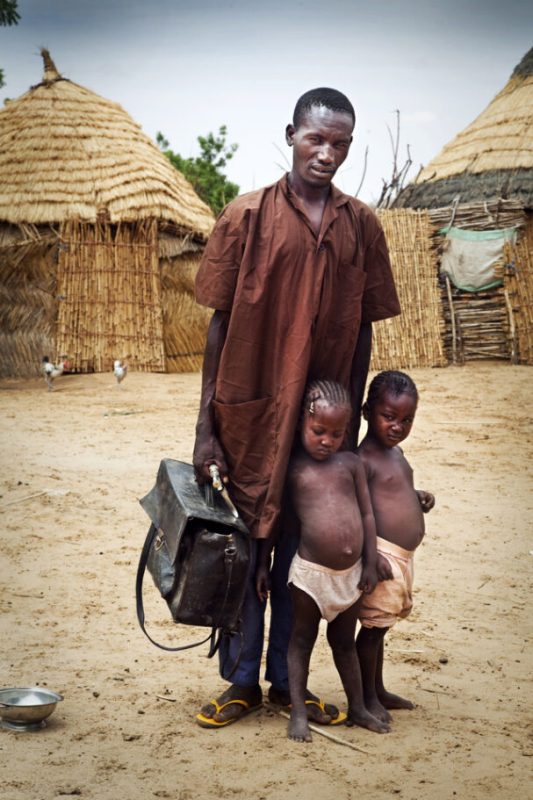
Community Animal Health Workers (CAHWs) receive training and equipment to provide basic livestock care. © Tim Dirven
“The main reason for our success in Niger is that we benefit from a favourable institutional context. That is the big difference between us and other countries. We have managed to get a national guideline adopted for setting up LPVSs. In 2015, we also got the Ministry to publish decisions that recognised the role of CAHWs and stimulated the establishment of LPVSs. Unfortunately, this institutional context does not exist in other countries. Some governments refuse to recognise the role of the CAHWs, partly for fear that they might compete with vets.”
In your opinion, what are the key factors in the efficiency and sustainability of the CAHW system?
“The choice of area is very important: you need to ensure that the number of animals is large enough to guarantee a good income for the LPVS. The second criterion is the choice of the people involved. Motivated workers are very important for the system to work well. You also need to be careful about complying with the criteria of the installation guide, especially with regard to networking. If the CAHWs are too close together, we find that many of them give up on the job, because supply is greater than demand and there is not enough work for everyone.
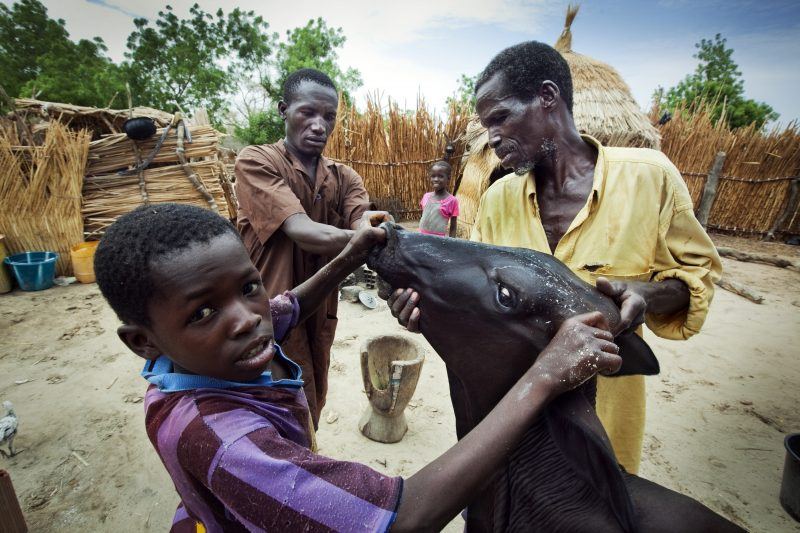
If an animal falls ill, farmers can turn to Community Animal Health Workers, who provide a local service © Tim Dirven
Another factor is the training and supervision of the workers. I have been working in the implementation of LPVSs for years, and one of the factors that contributes to their success is the fact that the vets manage to continue supervising their staff and mentoring them well. Refresher training sessions, especially practical exercises, strengthen their skills. Raising awareness at all levels is also very important: among livestock keepers, to ensure that they have access to conventional products, and among animal health workers and public and private veterinary services. Overall, the system works well in Niger, but it still faces challenges. According to people at work in the field, unfair competition and treating the animals with informally sourced medication are major challenges to the future of the system.”
These views were collected by our colleagues at VSF International during the validation workshop held in Niamey on 19 and 20 July 2023 to close the case study on the Community Animal Health Workers included in the project funded by the Bureau for Humanitarian Assistance of the United States Agency for International Development.

